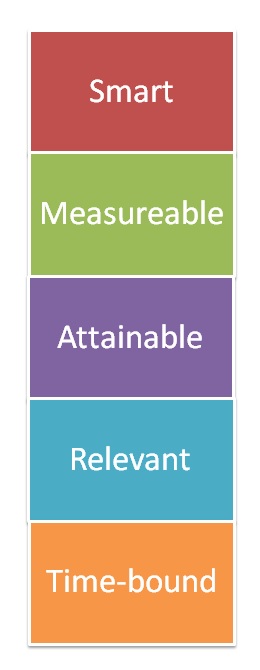
Goal setting is probably something you already do naturally, but it’s worth spending time learning how to set effective, SMART goals that can help you maximize academic success and achieve other life ambitions. The idea of SMART goals comes from the acronym (see image). In general, SMART goals are effective because they are designed to be realistic, so you are more likely to follow through and be successful. They are also designed to be measurable, so you will know when you have completed them and will be able to celebrate your accomplishment.
Why set goals? According to Locke & Latham (2002), goals affect our performance by directing our attention and effort towards “goal-relevant activities and away from goal-irrelevant activities” (p. 706). Challenging goals in particular lead to greater effort and persistence through to the completion of the goal. As you are goal setting, consider your values and priorities across all areas of your life. For example, you could set goals that are academic, career and work-oriented, or health and wellness-related; and these goals can be large and long-term, or small and short-term.
Wanting to achieve a specific grade or GPA, or turning in a project or assignment by a certain due date are examples of common academic goals. Regardless of the type of goal or focus, goal setting can be a useful tool for you for college and beyond.